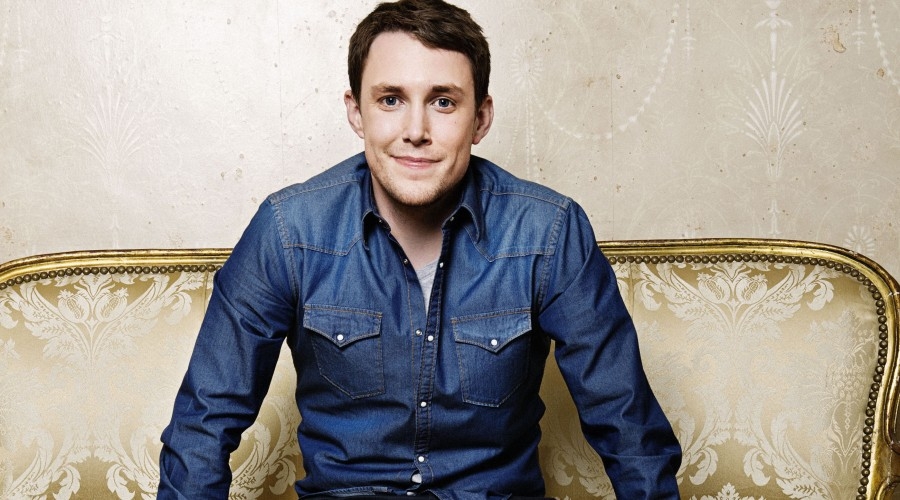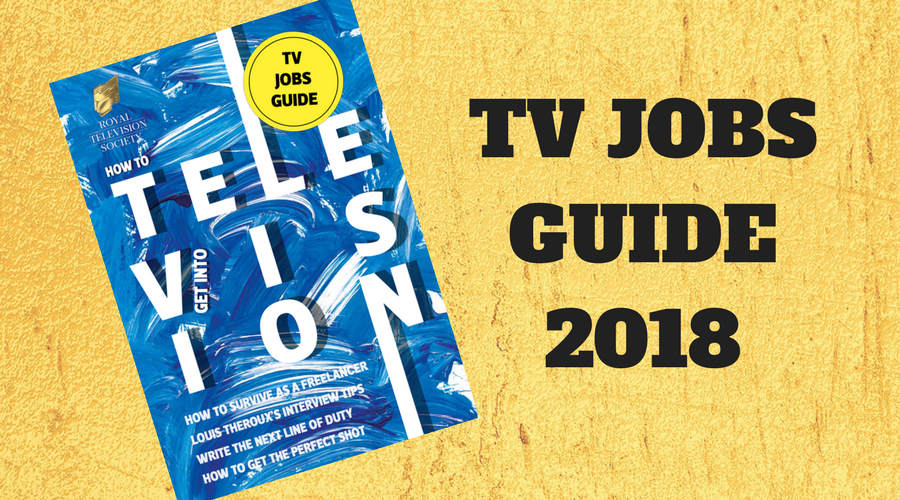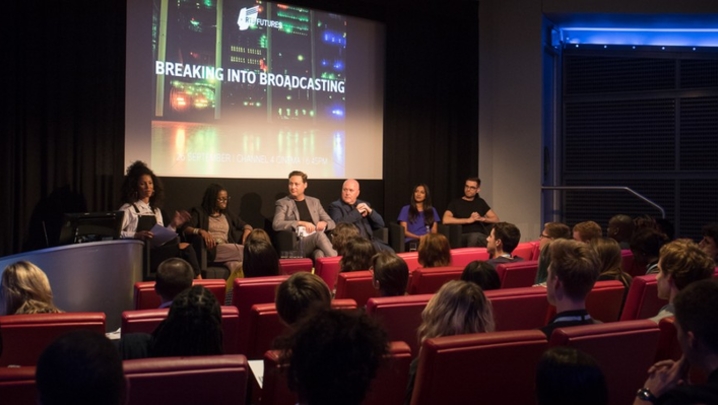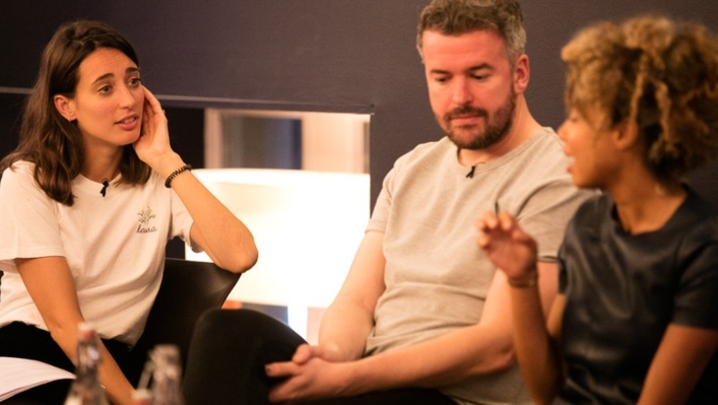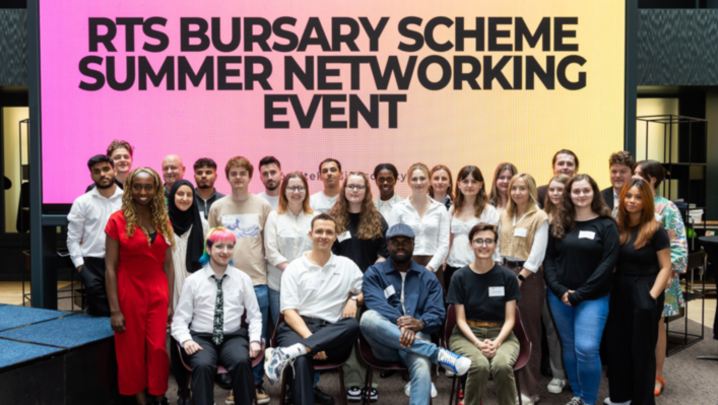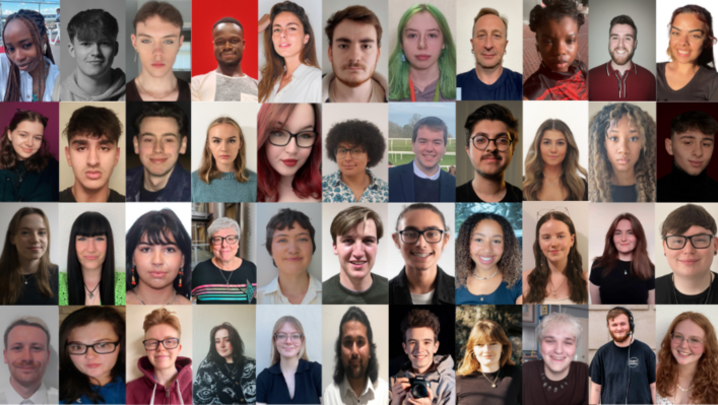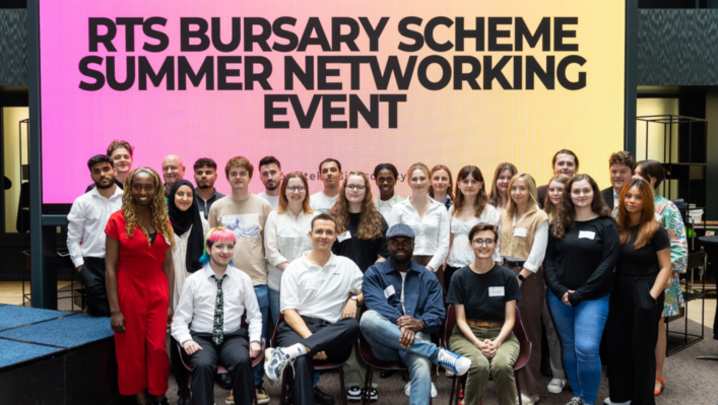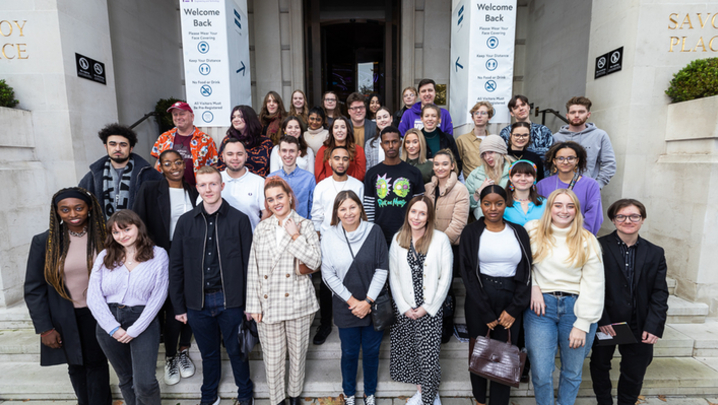Chris Stark is a strong believer in making your own luck.
When he was offered two days a week on the Scott Mills Show in 2012, he did everything in his power to get noticed. “I would turn up at 8.30 and stay all day and help wherever I could, no one asked me to leave!”
He has since gone on to become a household name on Radio 1 and has carved out an exciting career with fresh and interesting content for the station. “Try and find a way of being yourself which inherently will make you different,” he explains.
“I like to find the kind of bridge between these megastars and what we do on a weekly basis, like going to the pub.
“You can be yourself and be different, you don’t need to be a shiny presenter to stand out.”
It is this approach that has enabled him to branch off and explore other projects.
Alongside his successful career in radio, he has gone on to front his own celebrity interview series for Channel 4 and a number of short documentary series for BBC iPlayer, as well as DJing at venues all around the country. “I use all these other platforms to make that bigger.”
“If you have one central source of content you’re producing, whether that’s putting stuff on YouTube, or a podcast that you’re doing once a week, use that as your focus and use other things as assets of that.”
“Having that core, that one thing you’re doing regularly, allows all the branches that come off that, [and] little opportunities arise from those branches.”
You don’t need expensive equipment to be creative and stand out from the crowd, says Stark. “You get more of a ground swell behind you if you keep things raw rather than falsely polishing something that doesn’t need to be.”
The industry is hard to crack, but you should never give up, says Stark. “There’s always a point in which you think you need to give up on the idea of working in this kind of job, like [you’ve] been knocking on every door and no one’s listening.”
“It will be during work experience that you’ll meet someone that will try and help you. It’s those unexpected opportunities that make all the difference between people that succeed and the people that perhaps give up on them."
“You’ve just got to make sure you’re trying every possible door.”
Claudia Winkleman (Presenter and journalist): Smile a lot. Try and do work experience everywhere. Be a runner. Be an excellent runner. Have something else to do if doesn't work out. Try and work for your local radio station. Write for your local newspaper. Use a vast amount of eyeliner and good luck.
Yianni Charalambous (YouTuber, and presenter): YouTube is not about making money. If you don’t like what you are putting out and you’re only [doing] it for views, the audience can see that and they’re not idiots. As quick as you [can] grow, you can kill your audience just as quick.
Anna Richardson (Presenter, producer and journalist): The key things that really help is to decide what your USP is, what makes you different from anyone else. If you’re a vlogger, that really helps as well, getting as much experience as you can being on screen really helps. It really does take quite a few years to become good as a presenter.
Sue Perkins (Comedian and broadcaster): Starting from the point of view of wanting to be famous and recognised, wanting to be rich, it’s never going to work. If you start from the point of view of ‘I love people, I’m interested in stories’ then you stand a really good chance because being inquisitive, for me, is the defining thing. That makes a good presenter and a good journalist.
Alex Brooker (Co-host of Channel 4’s The Last Leg): The ability not to panic under pressure, because sometimes it can be pretty hectic, especially when you’re hearing a whole manner of stuff in your ear, [and] especially when you’re doing live TV.
Holly Pye (Director and agent): Understand what you want, what you’re going for, understand the business and be passionate. If you don’t like what you’re doing, it comes over.


